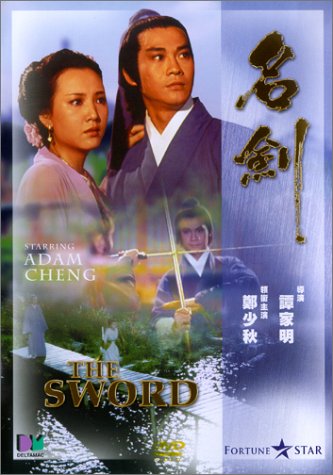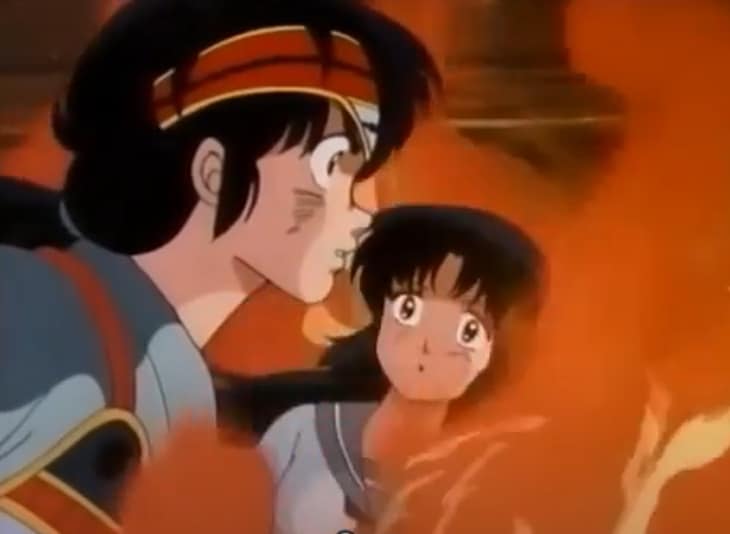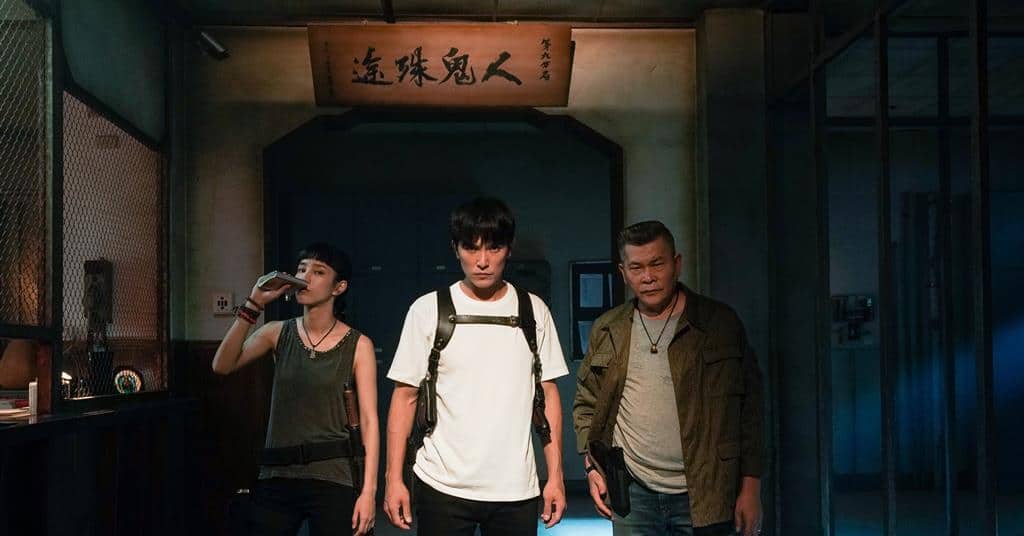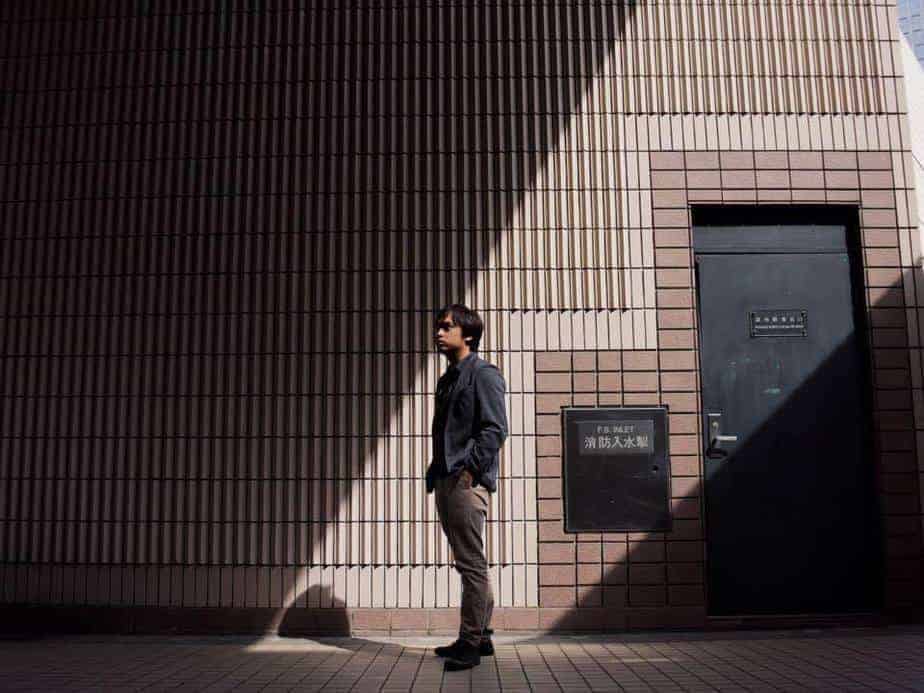Stories can be familiar because we here them so often. Whilst we are forever seeking something new, we return to the familiar because we enjoy them. With “The Sword” we begin to see how a fresh set of film-makers were beginning to take the stories of their youth and reimagine them for newer audiences. The onset of the New Wave produced several directors that had a fantastic visual flair. While Patrick Tam might not always be remembered as much as a Tsui Hark, he remains an artist that is worthy of discovery.
Buy This Title

Li (Adam Cheng) comes to the aid of Ying Chi (Chui Git) after she is attacked by an assassin. As they befriend each other, they stop at an inn when Li notices the arrival of Hsaio Yue (JoJo Chen) his long lost love. They meet and she tells him of her marriage to Lin Wan (Norman Chu) only for Ying Chi to find them together and storm off and Lin Wan to arrive with his hired hand (Eddie Ko). Despite a seemingly friendly greeting, he sends him after Li and leaves him injured. Li is restored to health by Yuen Chi (Bonnie Ngai) and passes on to him the Chi Mud Sword after he agrees to rescue the daughter of legendary swordsman Wah (Tien Feng). This turns out to be Ying Chi who invites him home to meet her father. Li, it transpires, wanted to face Wah to test his skills and the Chi Mud sword is recognized by Wah as the one he gave Yuen Chi upon his retirement, since he had been warned it was a bad sword many years previously and no good would come from its ownership. Fate and treachery lead to tragedy and revenge as the omen of the sword's ill repute prove to a prophetic warning.
With a large number of wu xia movies, there is a need to accept certain things. Firstly, the notion of fate and coincidence. Many of the these tales are tragedies that stem from ill fortune and a simple twist of fate. The stories can appear far fetched as characters meet in opportune moments because it is their fate to do so. Li just happens to meet Ying Chi who turns out to be the daughter of the man he seeks. An unlikely plot development or simply fate, that is for you as a viewer to decide. The other is that a sword can be almost a character in itself and becomes more than just an extension of the soul of the owner. Once Li inherits Chi Mud, death and tragedy follow him until the conclusion. Wah, the original owner tried to remove it from his life only for it to return in the cruelest manner.

Wu xia has always had the air of the fantastical and the exaggerated choreography is one of its trademarks. Whilst this is on display here, there is for the most part a restraint that sets it apart from others that started to appear as the New Wave hit its stride. Patrick Tam's tendency to shoot in close\medium shots makes these scenes stand out even in this, his directorial debut. The action feels more intimate and confined to the combatants, with only the occasional wide shot intruding to show off the wire work. This is combined with more reaction shots than is usual and rapid editing that can almost match the blows being struck with the blades. There is only one really outlandish sequence and that is the finale to the duel that is both sudden and spectacular. This is still, though, a feature crossing two worlds with the slower movements reflecting the more traditional style that had come before being juxtaposed with what was to come.
Adam Cheng is his usual debonair self as the initially self assured Li. His progression to disillusioned warrior follows the standard tradition of these features as what the hero seeks tends to be the opposite of what he ultimately finds. His picaresque journey to compete with Wah brings him an increasingly complicated series of relationships. Most of this is set up by Lin Wan which gives Norman Chu an excellent showcase for his brand of smarmy villainy who appears to be out to kill everyone in the entire film, for some reason or another. His henchman is played by Eddie Ko who has a wonderfully expressionless demeanor that makes for a superb foe. Practically silent for the most part, he carries the action for the bad guys until it is time for Norman Chu to step up at the conclusion. Tien Feng is a familiar face to avid Hong Kong movie fans of the era and he brings gravitas to his limited screen time as the honorable Wah. His actions are controlled by a fate he cannot escape; it's an engaging performance. Chui Git gets the best of the female performances as his fiery daughter. These are archetype roles however, like the ingenue female knight that is ultimately not mature enough to win her contests and must be rescued by the male hero. Hsaio Yue is the standard tragic heroine that is married to the wrong man and JoJo Chen does her best in what is the least well written of the parts.
If you were not aware that what is about to unfold is going to be a tragedy then Joseph Koo's score soon clues you in, with its sad melody of a main theme adding to the doomed atmosphere. Aside from the action sequences, the movie is equally exquisitely shot and framed. The final scenes play out like a horror movie with Eddie Ko framed on the ceiling and Norman Chu bathed in red light as the screen transitions into a full crimson. Some shots are hauntingly beautiful, capturing the loneliness of the warrior code as Li holds a sword aloft amidst the fading of the light. It's an assured debut for a director that sadly never got to make as many features as his talent would suggest.
The dawning of the Hong Kong saw an evolution in the standard of how the films would look and be constructed. This is one that shows the transition in process with one foot in the past and another in the future. While the narrative is still very much the same as many others, the style and look are what separates it from the pack. To paraphrase what one reviewer once eloquently wrote about John Woo ‘s “A Better Tomorrow” – there is nothing like watching a director finding his voice. This is Patrick Tam starting to find his and his is an effort worth revisiting.















